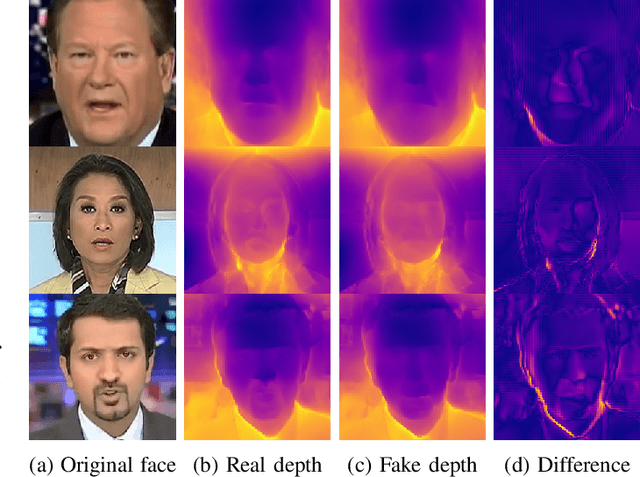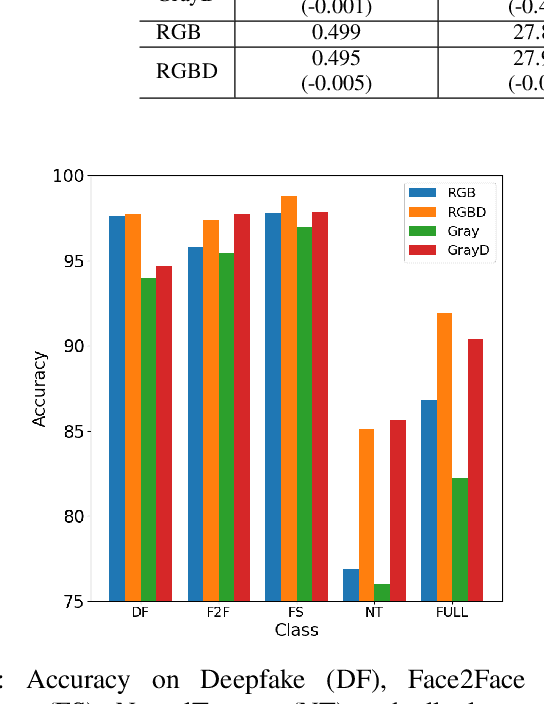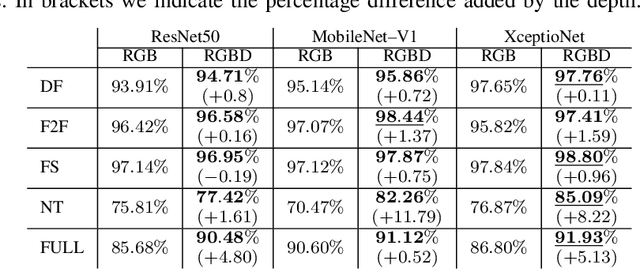DepthFake: a depth-based strategy for detecting Deepfake videos
Paper and Code
Aug 23, 2022



Fake content has grown at an incredible rate over the past few years. The spread of social media and online platforms makes their dissemination on a large scale increasingly accessible by malicious actors. In parallel, due to the growing diffusion of fake image generation methods, many Deep Learning-based detection techniques have been proposed. Most of those methods rely on extracting salient features from RGB images to detect through a binary classifier if the image is fake or real. In this paper, we proposed DepthFake, a study on how to improve classical RGB-based approaches with depth-maps. The depth information is extracted from RGB images with recent monocular depth estimation techniques. Here, we demonstrate the effective contribution of depth-maps to the deepfake detection task on robust pre-trained architectures. The proposed RGBD approach is in fact able to achieve an average improvement of 3.20% and up to 11.7% for some deepfake attacks with respect to standard RGB architectures over the FaceForensic++ dataset.
 Add to Chrome
Add to Chrome Add to Firefox
Add to Firefox Add to Edge
Add to Edge